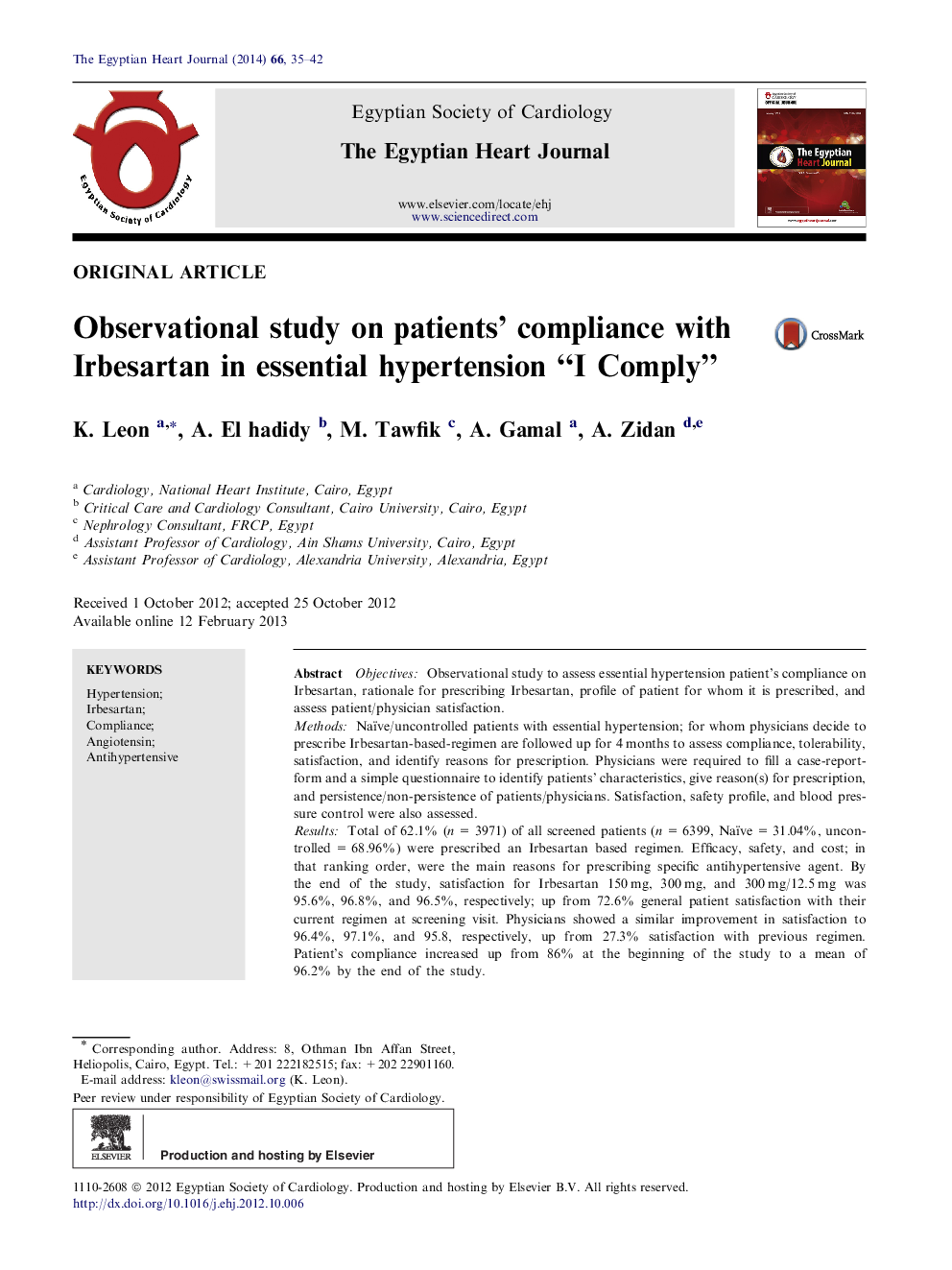| Article ID | Journal | Published Year | Pages | File Type |
|---|---|---|---|---|
| 2910726 | The Egyptian Heart Journal | 2014 | 8 Pages |
ObjectivesObservational study to assess essential hypertension patient’s compliance on Irbesartan, rationale for prescribing Irbesartan, profile of patient for whom it is prescribed, and assess patient/physician satisfaction.MethodsNaïve/uncontrolled patients with essential hypertension; for whom physicians decide to prescribe Irbesartan-based-regimen are followed up for 4 months to assess compliance, tolerability, satisfaction, and identify reasons for prescription. Physicians were required to fill a case-report-form and a simple questionnaire to identify patients’ characteristics, give reason(s) for prescription, and persistence/non-persistence of patients/physicians. Satisfaction, safety profile, and blood pressure control were also assessed.ResultsTotal of 62.1% (n = 3971) of all screened patients (n = 6399, Naïve = 31.04%, uncontrolled = 68.96%) were prescribed an Irbesartan based regimen. Efficacy, safety, and cost; in that ranking order, were the main reasons for prescribing specific antihypertensive agent. By the end of the study, satisfaction for Irbesartan 150 mg, 300 mg, and 300 mg/12.5 mg was 95.6%, 96.8%, and 96.5%, respectively; up from 72.6% general patient satisfaction with their current regimen at screening visit. Physicians showed a similar improvement in satisfaction to 96.4%, 97.1%, and 95.8, respectively, up from 27.3% satisfaction with previous regimen. Patient’s compliance increased up from 86% at the beginning of the study to a mean of 96.2% by the end of the study.ConclusionA total of 96% ± 0.8 of Irbesartan population were satisfied with their Irbesartan regimen. Reasons for prescribing a specific antihypertensive class were identified as efficacy, safety, and cost. Angiotensin-Receptor-Blockers were the antihypertensive of choice for 68.9% of physicians due to its efficacy (96.5%) and safety (85.9%). The majority (91.49%) of side effects were recorded as being ‘mild’, no serious adverse events were recorded.
